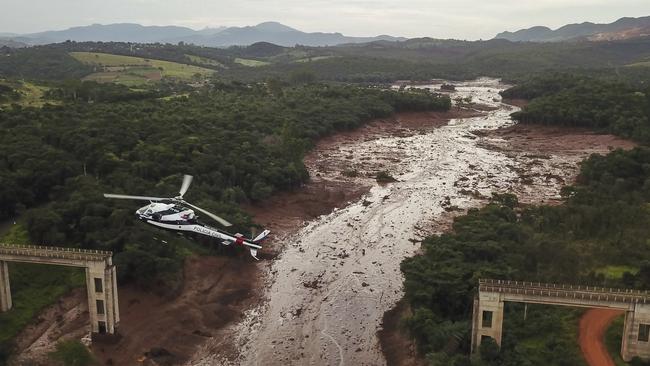Vale dam crisis deepens, as more structures declared unsafe
Mining giant Vale’s safety inspectors have refused to guarantee the stability of at least 18 of its dams and dikes in Brazil.

Vale’s safety inspectors have refused to guarantee the stability of at least 18 of its dams and dikes in Brazil as a crisis of confidence in the miner’s structures deepens following its deadly dam collapse in January.
Vale said it suspended operations at 10 of its dams and dikes in the southeastern state of Minas Gerais after failing to obtain stability certificates for the structures.
The miner’s external inspectors also refused to issue safety certificates for another eight dams in areas that Vale has already evacuated after deeming those structures to be at risk.
Under Brazilian regulations, auditing companies had until Sunday to renew the safety certificates of the miner’s structures.
Safety inspectors have come under scrutiny by authorities conducting a criminal investigation into the January 25 collapse of a Vale mine-waste dam. The tragedy, which killed about 300 people, ranked as the world’s most deadly mining disaster of its kind in more than 50 years.
Vale said its external auditors had refused to sign off on the 18 dams and dikes because they adopted more conservative models for their analyses, not because the structures themselves had become more unstable. It said auditors had also approved 80 of the company’s other mining structures. Vale didn’t name the auditing companies that refused to issue safety certificates for the 18 structures.
Of those 18 structures, the miner said it had cordoned off the 10 dams and dikes that were previously in operation. But it said those structures didn’t present a high enough risk to warrant evacuating the surrounding regions.
Vale said it had removed more than 900 people from their homes near high-risk dams as of March 21.
German certifications group TÜV SÜD, which certified the dam that collapsed in January four months before the incident, is now facing possible penalties under Brazil’s anticorruption law, officials told The Wall Street Journal last week.
An investigation in February by the Journal found that employees of TÜV SÜD, as well as Vale, knew for months of dangerous conditions at the dam on the outskirts of the town of Brumadinho. Yet TÜV SÜD employees certified the dam as safe, expressing worry about losing contracts with Vale, a major client, the investigation found. Those employees may face murder charges over the disaster, legal experts said.
Vale had initially hired the Brazilian unit of Tractebel, a subsidiary of French energy giant Engie, to certify the stability of the Brumadinho dam in September. But after Tractebel inspectors refused to approve the dam because of their concerns over its stability, Vale hired TÜV SÜD instead, according to court documents.
Prosecutors said they suspect this type of pressure by miners on their auditors to be widespread in Brazil, raising fears about the stability of other dams belonging to Vale and its competitors. They are probing more than 100 high-risk mining dams across the country, causing panic among local communities that depend on those mines for their livelihoods, but now fear for their lives.
“The large majority of dams have stability certificates, but everyone is now wondering if these certificates are reliable,” José Adércio Leite Sampaio, the federal prosecutor co-ordinating the investigation, said in an interview.
Vale said the announcement didn’t affect the company’s latest production guidance. Last week, Vale estimated the tragedy could cut its sales volume by as much as 75 million tonnes this year.
Marcelo Kokke, a federal prosecutor at the Office of the Federal Attorney General, said companies in Brazil’s mining industry have come under pressure -- both from society and from government authorities -- to be more cautious in the aftermath of the Brumadinho disaster.
The Rio de Janeiro-based miner said it had failed to secure approval for 17 of its structures, later raising the number to 18. It said it is working to ensure the safety of its dams, and co-operating with the authorities over the investigation into the January 25 disaster. TÜV SÜD said it is also carrying out its own investigation into the dam’s collapse.
The Brumadinho dam collapse comes three years after another dam jointly owned by Vale and BHP collapsed in the same region, killing 19 people. Both dams were so-called upstream dams -- the most widespread and cheapest method to store tailings, or mine waste, and the most prone to failure, according to experts.
Mining companies around the world have scrambled to review their own upstream dams after Brazil’s latest tragedy, raising concerns that the structures themselves are fundamentally flawed.
“All mining companies are racing against time to take action,” said Pedro Galdi, an investment analyst at Mirae Asset brokerage in São Paulo. He also blamed lax legislation in Brazil for not forcing companies to take more precautions at their dams in the Latin America country.
With Luciana Magalhaes
Wall Street Journal

To join the conversation, please log in. Don't have an account? Register
Join the conversation, you are commenting as Logout